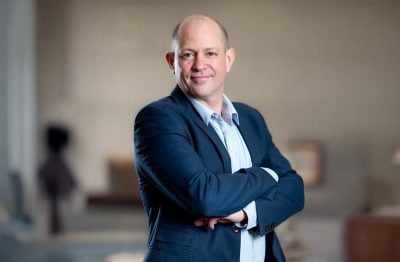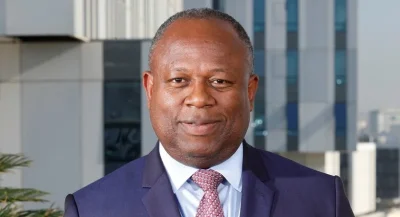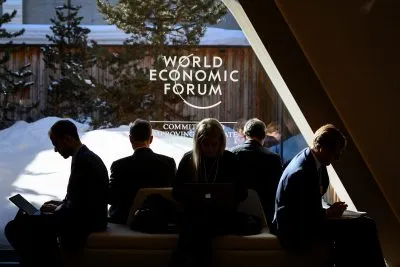When business and political leaders from around the world gather for their annual retreat in Davos for the World Economic Forum (WEF) annual meeting, they will have the option to participate in discussions and deal-making on an African continent that many analysts regard as the one that holds the most promise. Despite a chequered past, Africa’s human and natural resources have placed the continent firmly in the sights of global investors who recognise that the path to solutions for many global challenges – from climate change to the energy transition and demographic collapse – may run through the continent.
That is the central animating principle of Africa House, which will be on its fifth outing at the WEF in January 2025. Mamadou Toure, co-founder of Africa 2.0, the think tank behind the initiative, says they took on the task to correct a situation in which Africa, in spite of its vast potential, was something of an afterthought at such global fora. “We thought the continent didn’t have the space it deserved in international discussions and global decision-making. So we felt that it was our responsibility. It is really a civil society initiative,” he explains, noting that while other countries had similar installations at Davos for many years, Africa had until then been silent.
Africa House offers a dedicated space for Africa-focused discourse and actions.
“It’s a space where we can have not just open conversation, but constructive discussions about the direction that the continent wants to take, as well as the way in which it wants to engage with the rest of the world,” Toure says.
And there is much to discuss, as he points out.
“For instance, the African Continental Free Trade Area is the largest single market in the world today. This is not something to be ignored. By 2050, seven out of ten kids born on the planet will be Africans, and the population of the continent is going to be 2bn people. As we looked to the future, the question is: how do we start the conversations that can be linked to actual actions and deliverables?”
What Africa House intends to be is a place where plain and honest conversations are had about Africa, and where state and private sector players can co-create the Africa of tomorrow.
Leapfrogging technological stages
Toure is extremely optimistic about the continent’s potential, pointing to its history of leapfrogging in technology and even regional integration to show what Africa can achieve with concerted action and the right investment. So as technological expansionism takes hold globally, Toure is concerned that Africa is being left out of the conversation, when it has shown what technology can do for it.
“We know how Africa leapfrogged fixed lines to go to GSM [Global System for Mobile Communications]. We know how it transformed the continent. You can literally find a direct correlation between the introduction of GSM mobile telecommunications and Africa’s GDP growth,” he argues.
Similarly, Africa could skip a few generations of energy technology to build new systems that work better for it.
“Do we have to reproduce the same model from before? Maybe Africa is much stronger with a decentralised approach with smart mini grids where people can get their own energy without relying necessarily on that one central entity,” he reflects.
Africa House, he insists, wants to be the platform where these conversations are had and the resulting initiatives get off the ground.
This year, Africa House is partnering with the Pax Technologica initiative and will host the hip-hop star will.i.am, who moonlights as an investor in technology, a key theme of this year’s WEF meetings, which suggests that technology will be key to the discussions.
Toure says the big lesson from the last few years of global disruption is that Africans have to take their destiny into their own hands. In a more fragile world where powers are being realigned, Africa must realise that it can no longer rely on the old systems and the regular approaches. For example, he says, Africans abroad send back close to $100bn a year, dwarfing government and multilateral assistance from the developed world. Africa must thus find new ways to leverage its various assets to build prosperity, rather than rely on others.
“Somebody has to ask those questions and we want to be that platform where those questions are asked. That’s what we will be doing to highlight those alternative opportunities.”
Reconsidering the continent
One of those questions will be on the adverse narratives around Africa, which dampen investor appetites and manifest in a risk premium for African borrowers. Toure is very exercised by this and reveals that there will be a dedicated session to discuss this issue.
“We are inviting media leaders from the continent and beyond to have this conversation. Unfortunately, perception is reality and risk is a matter of perception.”
While Africa defaults at rates lower than other continents, it struggles to attract funding for its infrastructure. A way out, Toure suggests, is to source local currency financing which, he says, would “reduce exposure to currency fluctuations”.
Africa 2.0 prides itself in being more than a think tank putting out papers and promoting policies; it seeks to actually make its ideas happen, and Africa House fits into that agenda. Toure points out that previous editions have brought together leaders from the continent and leaders from the world of business to forge important partnerships, many of which are leading to tangible outcomes.
He concedes, however, that a lot depends on the parties, rather than Africa House, which merely facilitates the interactions.
“We convene, we facilitate, we encourage and we drive in a particular direction. We make sure that Africa’s voice and perspective resonates globally around those platforms. But we let the stakeholders be sovereign in driving Africa’s future. Because we’ve learned one thing: when things are too centralised, things get stuck.”
Natural wealth
In at least one area, however, Toure is a direct actor.
“Africa’s natural wealth exceeds $100 trillion. You have new models based on Web3, blockchain technology and artificial intelligence that allow you to tokenise those resources,” he points out.
Toure believes technologies like tokens can help to monetise and increase the value of Africa’s resources.
Breaking with the past is a feature that Toure constantly comes back to. Whether it is in funding the continent, creating jobs or leveraging its resources, Toure argues passionately for new approaches and the idea that Africa House can incubate some of those ideas. The 2025 edition, he says, will be a harbinger for some of these new approaches. There are going to be a few announcements at Africa House. Some are going to be pretty ground-breaking technology and investment partnerships, Toure suggests.
“That’s also where Africa House wants to differentiate from many other platforms,” he says.

 Sign in with Google
Sign in with Google 



